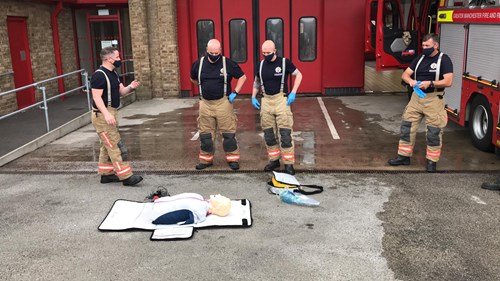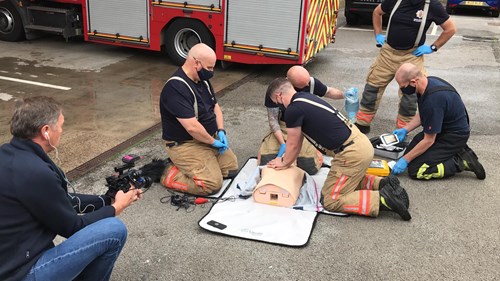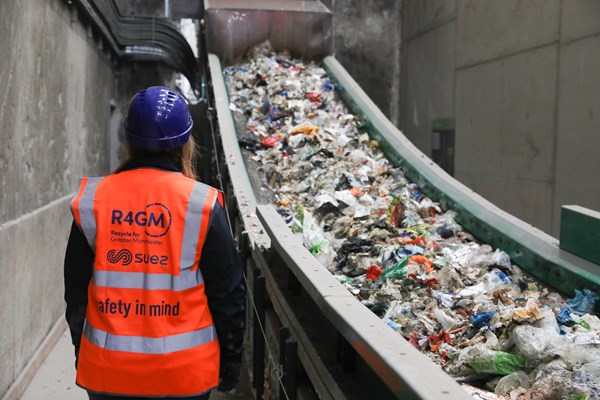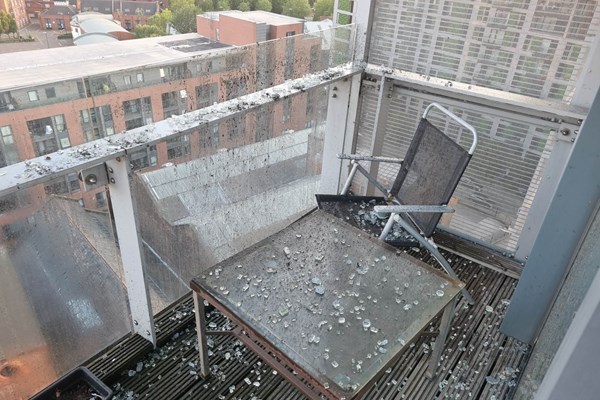
Firefighters refresh CPR skills and public urged to do same following footballer's cardiac arrest
GREATER Manchester Fire and Rescue Service (GMFRS) is encouraging the public to learn about CPR and refresh their First Aid skills, with the city-region’s firefighters doing the same.
Red Watch at Mossley fire station in Tameside practised CPR during a routine training exercise this morning (Monday 14 June) following international footballer Christian Eriksen’s cardiac arrest during Denmark's Euro 2020 game against Finland on Saturday.


The player received emergency medical treatment on the pitch before being taken to hospital – thankfully, the 29-year-old is currently stable and has sent a message to his team-mates.


Now GMFRS is encouraging all residents of Greater Manchester to develop their own knowledge of First Aid because one day anyone could help save another person’s life.
Gaz Phillips, Watch Manager at Mossley Community Fire Station, said: “Crews regularly train on First Aid and trauma as part of our day-to-day training. Having seen the impact of the lifesaving actions at the weekend, we decided to refresh our high-performance CPR skills whilst undertaking Watch training.
“We can’t stress enough the importance of being able to undertake basic life support CPR to improve the survivability of somebody in cardiac arrest.
“We’ve attended several incidents in the past where we have used our skills and saved lives. Today’s training was designed to keep that at the forefront of our minds and ensure our crews have the skills to respond to the wide range of challenging and demanding incidents we are called to on a daily basis."
Dave Russel, Chief Fire Officer at GMFRS, added: “I’m a Blackburn Rovers season ticket holder and like so many football fans was shocked and upset by Christian Eriksen falling ill during the game on Saturday. As an emergency service our thoughts are with him, his family and friends as he begins his recovery.
“The incident provided a timely reminder that the human body is a fragile thing and that we can all help ourselves and our fellow residents of Greater Manchester by learning about First Aid and how we can help in a medical emergency. GMFRS works closely with NWAS and we are always hugely impressed by their colleagues’ skills and expertise, but you don’t need to be a medical expert to help save a life. Learn First Aid, develop CPR skills, because you never know when it might be needed.”
A cardiac arrest is an extreme medical emergency and happens when the heart stops beating in a normal way, preventing blood from pumping around the body. Knowing how to help could save a life.
Someone in cardiac arrest will die within minutes unless treated immediately with CPR. A person can perform CPR whilst waiting for the ambulance to arrive.
North West Ambulance Service (NWAS) has a helpful advice sheet available online, as well as an instructional video.
North West Ambulance Service’s Interim Head of Service for Greater Manchester, Dan Smith, said: “It’s great to see Greater Manchester firefighters take the initiative and refresh their CPR skills following the harrowing scenes in Denmark on Saturday.
“We would encourage everyone to learn CPR and other first-aid skills, as you never know if you might need to provide life-saving treatment to a family member, friend or even a stranger in an emergency.
“In these circumstances, we want everyone in cardiac arrest to have the best chance of survival, no matter when or where they take ill and the sooner effective CPR can start, the greater the increase of survival.”
If you come across someone in cardiac arrest, the public are encouraged to think ‘DRS ABC’:
- Danger – keep calm and check the scene is safe to approach
- Response – shout “are you alright?” and shake the person’s shoulders
- Shout for help– send someone for help and call 999
- Airway – tilt the head back gently to open the airway
- Breathing – check for normal breathing by looking at the chest to see if it is rising and falling or listening for abnormal sounds such as infrequent and noisy gasps
- Compressions – if the patient is not breathing normally, start hands only CPR pushing hard and fast in the centre of the chest.
If you are taking part in an activity such as playing competitive sport, it is important to know where the nearest defibrillator is before taking part. You can find your nearest defibrillator here.
If there is a defibrillator nearby send someone to get it. You do not need prior knowledge of how to use one as it will give clear instructions. It could save someone’s life.
If CPR is required, the instructions to follow are:
- Kneel at the side of the patient
- Put the heel of your hand in the centre of the chest with the other hand on top*
- Keep your arms straight and elbows locked
- Push down hard and fast – twice per second
- Let the chest come back up before you press down again
*Use one hand for a child and two fingers for a baby
14/06/2021 15:50 PM



